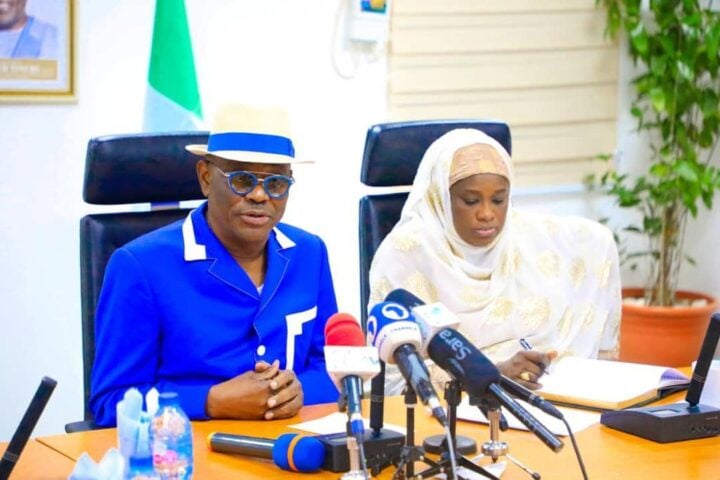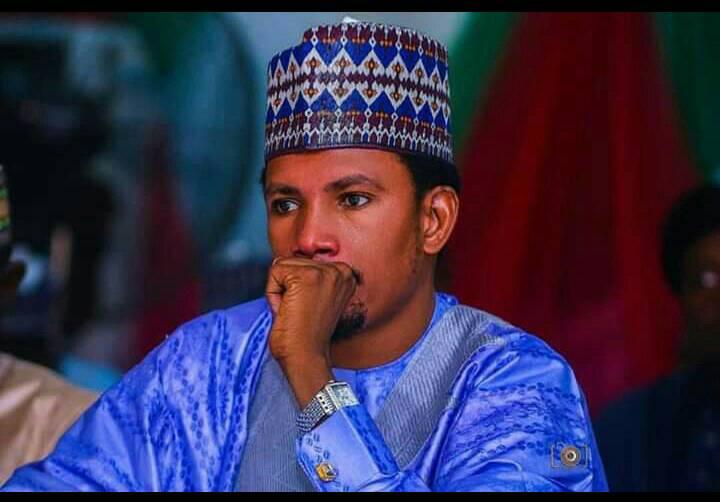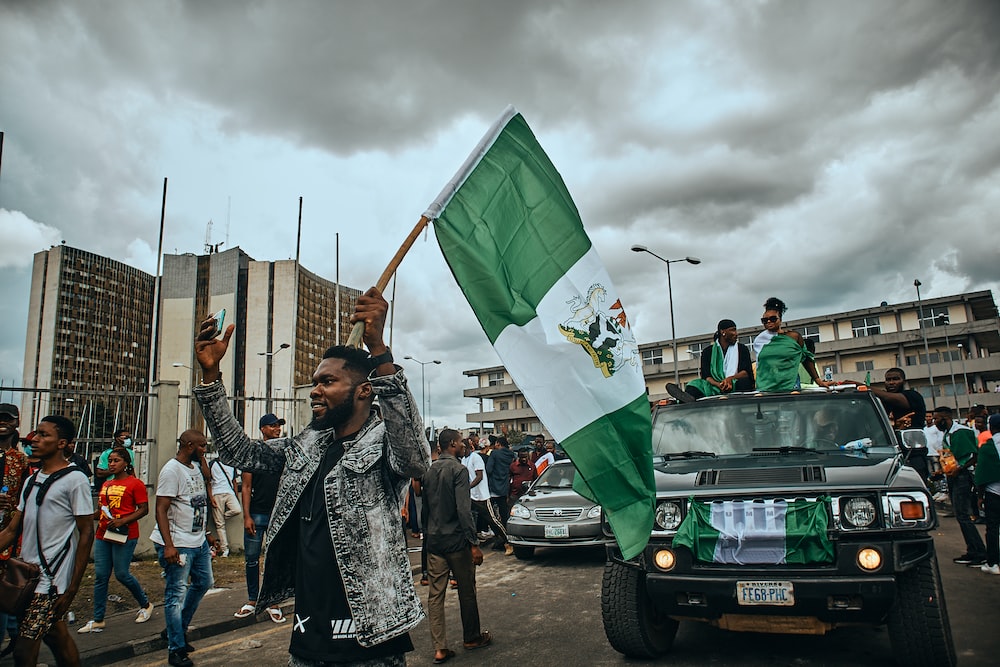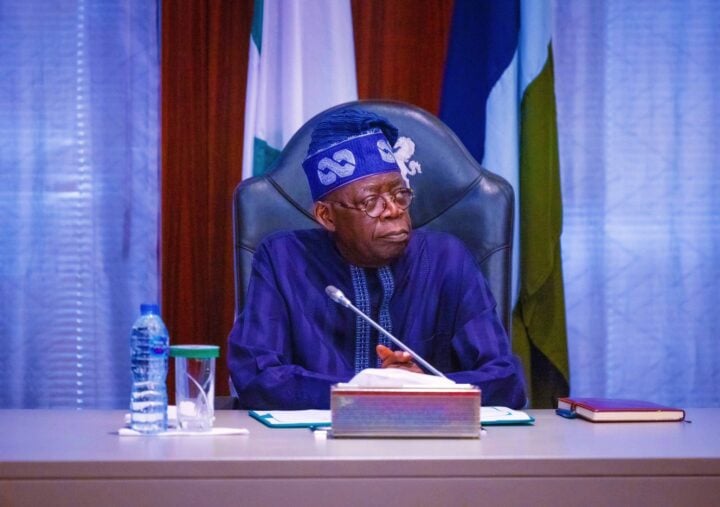Nyesom Wike (in blue outfit)
Love him or hate him, the naked truth about Nyesom Wike , the minister of FCT, is that he is a man with uncommon energy for making things happen in his sphere of influence. He is huge in courage and humongous in boldness to say things as he sees it. If the seriousness with which he has hit the ground running within an hour after his swearing in on September 11 till date is anything to go by, then FCT may be getting ready to enter into her season of progressive roller-coaster leadership. The big question is: Will Wike’s leadership be sufficient for rejigging FCT and place her on the pedestal of glory? Particularly in the face of the two formidable forces that have been the bane of Abuja’s suggish advancement over the years.
The first is the strongholds that had pocketed Abuja as their prized possession without sparing any thought or regard for the history, vision and purpose of the city. The second is the lack of vision and appetite of most of the past FCT ministers to build Abuja into a city that can truly compare and compete with leading cities across the world.
Just as Nigeria is hungry for transformative leadership to turn her fortune around and cause her to rise to her deserved position in the committee of the most endowed nations of earth; Abuja is seriously in need of a leader who is a dreamer, a visionner, an achiever, a reformer, a transformer, an innovator, a shift thinker and a performer. Will Wike be able to rise up to these challenge or will he end up as only a restorer of the Masterplan and a jolly good fellow?
Abuja is badly in need of conscious and transformative leadership because she is a purpose built city that hasn’t lived up to her potentials and possibilities.
Abuja is unlike any other city in Nigeria. It is a city with foundation. It was built with a peculiar vision in mind. It was not built to be a Hausa city, an Igbo City, a Yoruba city or a city for the original indigenous inhabitants. Unlike Lagos which wasn’t originally built on purpose as Nigeria’s capital, Abuja was built to be the Nigerian Capital – a City for all Nigerians. It was designed to be Nigeria’s city of pride and glory. Part of the unwritten intention was that it’s beauty, orderliness and awe will be something the governors of the 36 states can draw inspiration from to modernize, transform and develop their capital cities. The uniqueness of Abuja’s founding vision and principles therefore demand that the city should be established on certain irreducible minimum principles of progressive governance and development.
Advertisement
The first irreducible minimum is that the city shouldn’t suffer the negative effects of the planlessness features prevalent in the other cities in Nigeria. A city built on purpose should not harbour any feature of planlessness if the leaders are conscious and efficient leaders.
The second is that the city should have it’s own unique style, character and identity. It shouldn’t embrace haphazardness and chaos. Take a good look at any truly beautiful city across the world and you will notice without stress their unique style, character and identity.
The third is that excellence, professionalism and the highest standards of development should be Abuja’s prevailing ethos, character and culture. Without a culture of meritocracy and professionalism, the best we can build out of Abuja is a newly built city with chaotic elements and third world realities.
Advertisement
The fourth irreducible minimum is that innovation and intentionality should be the guiding philosophy of her city managers. The soul of first – class and emerging cities across the world today is innovation. Shift thinking philosophy and idealistic / revolutionary architecture are the some of the signatures of today’s leading cities.
The fifth is that diversity and inclusiveness should be woven into every aspect of the development architecture and management. Diversity and inclusion philosophy is the key to making Abuja live up to it’s name as the “Center of Unity”.
The absence of these five irreducible minimum in the management culture of the Federal Capital Territory is the reason Abuja has remained an ordinary modern city with sluggish developmental pace in the last four decades. If Wike will make the much needed different in Abuja and succeed in writing his name in gold, these five irreducible minimum must become his compass of leadership in FCT.
Throughout the four years of Nasir El-Rufai, the most performing FCT Minister since 1999, all the efforts were on addressing irreducible minimum number one. He spent most of his energies trying to see to it that the city shouldn’t suffer the negative effects of the planlessness features prevalent in the other cities in Nigeria. This is what is popularly known as restoring Abuja’s Masterplan. The Ministers that succeeded him didn’t give steam to that war when El-Rufai paved way for them. That is the battle that has consumed over 70% of Wike’s time, thoughts, energy and actions since he took office.
Advertisement
The Minister that will rejig Abuja and transform her to a truly modern city will have to do more than restore the city’s masterplan. He or she will have to drive the realization of all these five irreducible minimums, switch to a higher gear and step into the lane of hypersonic development. The city is in need of these giant strides like the desert needs rain.
In today’s hitech world, the competiveness of cities has become as tough as the competition between fast moving consumer products or Formula 1 major gladiators. Cities now compete with cities for medical tourism, education tourism, conference tourism, sports tourism, destination wedding tourism and a host of others. As of today, Abuja remains a political and civil service city with humongous untapped potentials and mismanaged opportunities for global significance.
Road infrastructure
To many people who travel to Abuja from other parts of Nigeria, Abuja roads are beautiful. This is true compared to what obtains in other cities and villages in Nigeria, but is below par for a true modern city. A truly global city don’t spend 15 years to construct 15 kilometre roads. They also build roads that are spectacles to behold with the elements of beauty, comfort, splendour, safety, free flow of traffic and functionality woven into one. Like other Nigerian cities, some roads in Abuja are still built as if there were space constraints and without the future growth of the city’s population in mind. Most of the major ongoing road projects in FCT now started over 13 years ago and they are still far from completion. Examples are the GoodLuck Jonathan road and the Apo Junction to Karshi road. This kind of slow pace of work is a sign of an ordinary city and Abuja wasn’t built to be one.
Advertisement
If the pace of development of the city has been organized to match – up to the vision of the founding fathers in roads infrastructure, almost all the parts of the territory as designed on the Masterplan should have been completed forty years later. But the problem of corruption, and unpatriotic public servants and lack of ideas on how to bridge the finance gap for road projects in FCT are the reasons most of the roads remain a shadow of the roads in the masterplan. It took nearly two decades of Abuja’s existence to complete Ring Road 1. Ring Road 2 largely remains a single carriage way 13 years after El-Rufai opened it up to serve the estates from Kabusa Junction to Life Camp – Round About. Some parts of Ring Road 3 are still on groundbreaking stage or not even ready to be built at all as of today. Some of the roads have been commissioned more than once officially, but they are yet to be built.
To rejig Abuja, the minister has to stamp out the lucrative culture of allowing road projects to drag on endlessly so that continuous upward review of the cost can be achieved. He also has to rethink roads project financing models that could help get the jobs done quicker and better. His experience in Rivers State will prove useful here.
Advertisement
Housing
Of what use is a city that can’t provide decent accommodation for her citizens? Affordable housing is a huge challenge in the FCT. The prices are way beyond the resources of an average resident. An average graduate in the Federal Capital Territory earns around N720,000 (seven hundred and twenty thousand naira) per annum. But one-room accommodation (self contain with kitchen and toilet) costs and average of N600,000 (six hundred thousand naira). 1 (one) bedroom flat costs an average of N1 million in the city. As a result of the high cost of housing, most workers in the FCT are forced to look to the many growing slums all across the territory for accommodation. Many of these slums are not fit for human habitation by any standards but the people left with no choice are forced to hold up in these shanties hoping for a better tomorrow.
Advertisement
To address the housing challenges for low income earners and home seekers in the FCT, the government needs to embark on ambitious, innovative and affordable housing policy and program that will ease the pain of the people and free up the slums for redesign and development.
Education
Advertisement
The only public university in the entire Federal Capital Territory of about 3 million residents belongs to the federal government. The FCT Administration has been constructing a University for nearly two decades without success. The minister has to complete the FCT University of Science and Technology and promote innovative education system development at the basic, secondary and tertiary levels to address the education needs of the families who can’t afford the high fees in the private universities in the territory.
A growing army of illiterates is building up daily in the FCT. There are over half a million FCT youths who can’t speak English, the ligua franca in Nigeria. In droves, these young Nigerians relocate into the city daily in search of opportunities even though there is no system on ground to acculturate them into the FCT standard. At the rate of their influx, they will take over the city within a decade and redefine her culture if nothing is done to educate and reorientate them. The FCT needs a leader who knows what to do to engage these youths and channel them in the right direction.
Innovation
One of the ways to promote opportunities in a city like Abuja is by promoting ambitious and aggressive innovative development. Abuja has remained a city of politicians and civil servants with buying and selling as the major private sector activity because of lack of innovation in the leadership and development of the city.
Innovation is pursued through well thought out policies, programs, projects and partnerships. Dubai didn’t become a global city receiving over 50 million visitors annually without launching the Dubai Media City, Dubai Sports City, Dubai Investment City, Palm Jumeirah, Jabel Ali Market and other ambitious innovative projects. Abu Dhabi’s Thrive in Abu Dhabi is one of the many innovative policies and projects that are driving the world to the UAE Capital City.
Saudi 2030 is an innovation program to add other forms of tourism to the current religious tourism that brings millions to Riyadh and other cities of Saudi Arabia. As emerging cities around the world are innovating their ways to greater global relevance, Abuja is watching. Even where the city has an innovative plan on ground, implementation is always the problem. Abuja has an Economic city in plan but nothing has been done to transform the plan into reality. One of the past myopic leadership allocated over 500 hectares of the land in the economic city to highly connected individuals who are distorting the plan and selling them to prospective estate developers. With that kind of thing madness going on, it is hard to see how the vision of the economic city will ever be achieved.
Abuja wants to be a big tourism destination on paper, but the will to achieve this vision is almost non-existing. The FCT doesn’t even have a functional tourism department much less a directorate. It remains to be seen how a tourism desk tucked inside the Arts and Culture building with a powerless director can drive tourism in Abuja or achieve the vision of Abuja Tourists City.
The Nigerian Cultural Centre and the 170 meters Millenium Tower in Abuja that would have added colour and vibrancy to the city has been under construction for over 17 years. Though the project is a Federal project, an efficient FCT Minister can help Fast-Track the completion of the project which started in 2006 because of its importance to the city.
Within a much lesser time frame, UAE’s Dubai has built the tallest 161 floors building in the whole world and has been generating millions of dollars income annually from it to recover it’s investment.
From conceptualisation to completion, innovation is the thread that runs through the achievement of mega city projects across the globe. Nigeria and FCT shouldn’t be an exception in using innovation to drive development. Nyessom Wike can use this golden opportunity to manifest exceptional leadership style to show the world Nigerians can build a truly modern city that can compete globally.
Osho is a passionate advocate of Nigeria’s emergence as the pride of Africa through quality and innovative leadership. He is a global road safety advocate and co-founder of Safety Beyond Borders & Inspire Nigeria Initiative. He was the candidate of the Social Democratic Party (SDP) for Senate in FCT during the 2023 elections.
Views expressed by contributors are strictly personal and not of TheCable.







